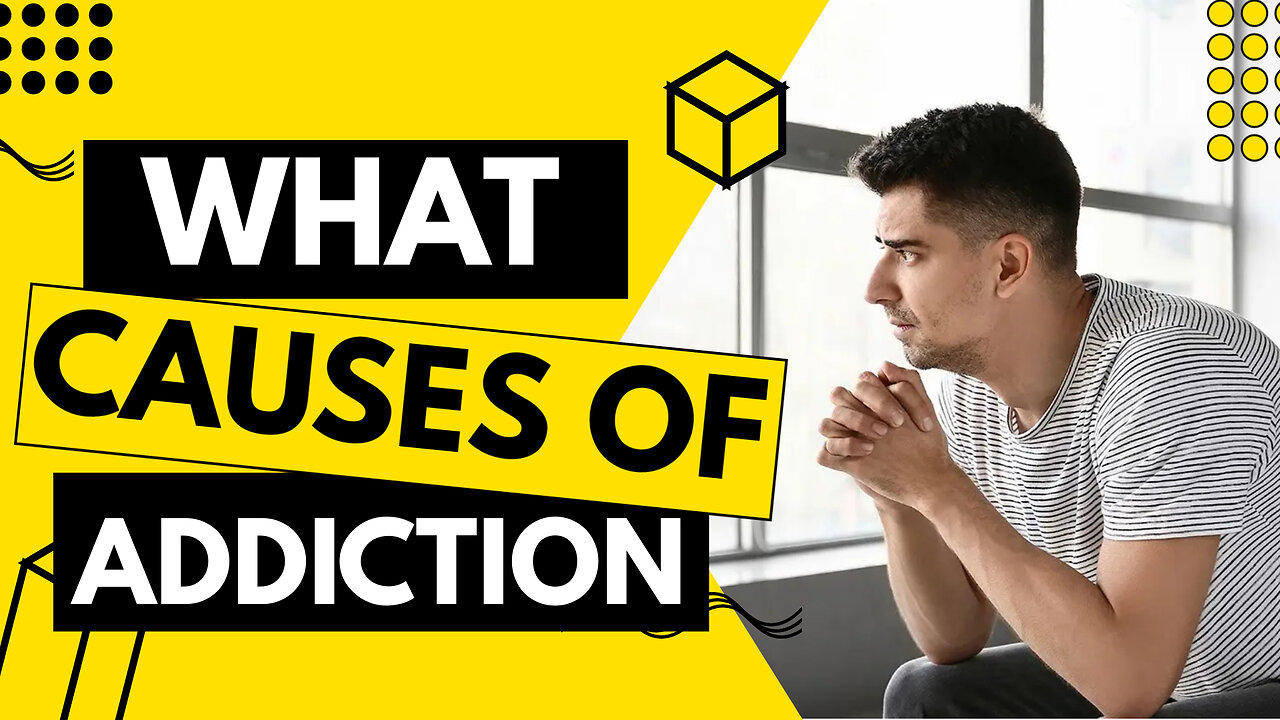Premium Only Content

What Causes Addiction - The Science of Addiction
In the realm of neuroscience, psychology, and public health, addiction remains a formidable challenge. From substance abuse to compulsive behaviors, addiction can exert a powerful grip on individuals, often leading to devastating consequences for both the affected individual and society at large. Understanding the intricate mechanisms that underpin addiction is crucial for developing effective prevention and treatment strategies. In this comprehensive exploration, we delve deep into the science of addiction, unraveling its causes, manifestations, and potential avenues for intervention.
Before delving into the science behind addiction, it’s essential to establish a clear definition of what addiction entails. Addiction is a complex condition characterized by compulsive engagement in rewarding stimuli despite adverse consequences. This definition encompasses a wide range of addictive behaviors, like play games, internet addiction, and compulsive eating.
At its core, addiction involves alterations in brain function and neurochemistry, fundamentally reshaping the way individuals process reward, motivation, and decision-making. Key neurotransmitter systems, including dopamine, glutamate, and serotonin, play pivotal roles in the development and maintenance of addictive behaviors. Dopamine, in particular, is implicated in the brain's reward circuitry, reinforcing pleasurable experiences and driving the cycle of addiction.
While environmental factors undoubtedly influence addiction, genetic predispositions also contribute significantly to an individual's susceptibility to addictive behaviors. Family and twin studies have provided compelling evidence of genetic heritability in addiction risk, with certain genetic variations increasing the likelihood of developing substance use disorders or other addictive behaviors.
Psychological processes, including stress, trauma, mental health disorders, and personality traits, also contribute to the development of addiction. Many individuals turn to addictive substances or behaviors as a means of coping with negative emotions or seeking temporary relief from psychological distress. Moreover, certain personality traits, such as impulsivity and sensation-seeking, are associated with an increased risk of addiction.
-
 1:18:38
1:18:38
Glenn Greenwald
9 hours agoProf. John Mearsheimer on Trump's Knesset Speech, the Israel/Hamas Ceasefire, Russia and Ukraine, and More | SYSTEM UPDATE #530
115K79 -
 2:21:37
2:21:37
Tucker Carlson
7 hours agoAlex Jones Warns of the Globalist Death Cult Fueling the Next Civil War and Rise of the Antichrist
89.7K405 -
 12:35
12:35
Clownfish TV
15 hours agoJimmy Kimmel Return NOT Helping Disney AT ALL! DIS Stock Keeps Falling! | Clownfish TV
40.4K8 -
 LIVE
LIVE
Eternal_Spartan
9 hours ago🟢 Eternal Spartan Plays Final Fantasy 7 Rebirth Ep. 10 | USMC Vet
711 watching -
 2:10:42
2:10:42
RiftTV
9 hours agoTrump SECURES Hostages, ACCIDENTALLY Admits Foreign Gov CONTROLS Him? | The Rift | Gerald Morgan Jr.
56.3K49 -
 LIVE
LIVE
Phyxicx
6 hours agoStarting Dead Space 2 - 10/13/2025
125 watching -
 9:29:38
9:29:38
Dr Disrespect
16 hours ago🔴LIVE - DR DISRESPECT - BATTLEFIELD 6 - JET CRASHES, EXPLOSIONS, 360 NO-SCOPES
158K7 -
 2:50:08
2:50:08
megimu32
6 hours agoOTS: Wait... They Were in THAT?! Famous Actors’ Forgotten Roles!
18.3K3 -
 21:44
21:44
Jasmin Laine
10 hours agoTrump Haters SILENCED—Historic Peace Deal PROVES Them ALL Wrong
23.9K22 -
 4:00:11
4:00:11
Jorba4
7 hours ago🔴Live-Jorba4- Battlefield 6
4.67K